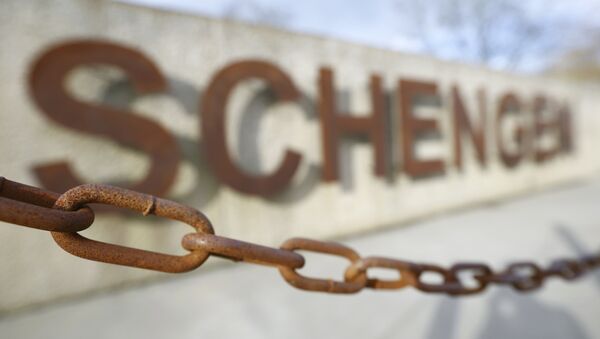The Schengen zone is central to the European Union's commitment to allow for the free movement of people, work, goods and capital throughout EU member states. However, the migrant crisis exposed a major flaw in the system: the failure to secure its outer borders.
The European Parliament's civil liberties committee is holding talks Monday on the proposed new strategy to restore Schengen with the European Commission.
.@EP_Justice discusses strategy to restore #Schengen with @EU_Commission from 4.30pm CET https://t.co/MCBB1v9RSy pic.twitter.com/hMWnTQs4X1
— European Parliament (@Europarl_EN) 21 March 2016
With efforts to strengthen the EU's external borders ongoing and following the deal struck with Turkey at the EU summit on March 17-18, the Commission is keen to remove the temporary border controls imposed by several member states within the Schengen zone as soon as possible.
Dismantling the EU's #Schengen free movement system will mean more than just border queues https://t.co/KgcTle5CQs pic.twitter.com/S0T7zygrOr
— Greens in the EP (@GreensEP) March 21, 2016
However, skeptics say any attempt to shore-up Schengen's external borders will be extremely expensive and take months — if not years — to achieve. The EPP group of lawmakers released a statement saying:
"The Member States on the frontline, like Greece, are bearing the brunt of the pressure and unless there is a concerted European response, what we might end up with is a band-aid on a hemorrhage."
Closed Borders
On 4 March the Commission revealed its roadmap for restoring the Schengen zone, which includes measures to reinforce the EU's external borders as well as improving the asylum system. This is in response to several member states temporarily reintroducing border controls to deal with the refugee crisis and terrorism threats.
The sheer volume of refugees crossing into Turkey and following the so-called West Balkans route has put intense pressure on many countries in Europe, leading to some countries — including Bulgaria, Croatia, Slovenia, Denmark, Hungary, Germany, Austria, Greece and Italy — re-establishing border controls.
What would the end of #Schengen cost #Europe? @GuntramWolff https://t.co/y785UIWmDU #refugees pic.twitter.com/6gRIPDfmNq
— World Economic Forum (@wef) March 13, 2016
In February, the Visegrad group of countries — the Czech Republic, Hungary, Poland and Slovakia — together with Bulgaria and Macedonia called for urgent action to close the Macedonian and Bulgarian borders with Greece in order to deal with the refugee crisis.
On March 16, the civil liberties committee adopted a report calling for a centralized EU system for asylum claims with national quotas. MEPs say a new system is needed to ensure fairness and shared responsibility, solidarity and swift processing of applications. However, many countries — particularly in central Europe — are opposed to any quota system for the relocation of refugees.




